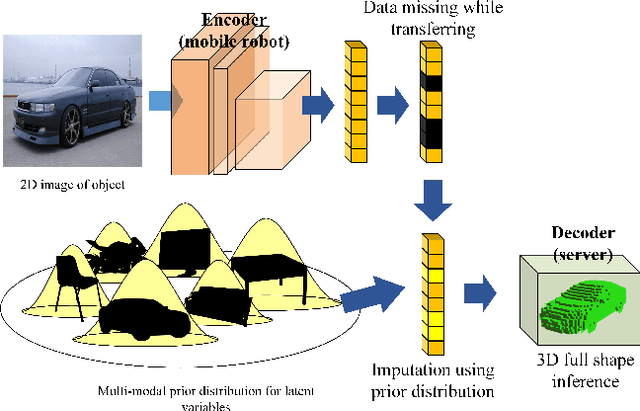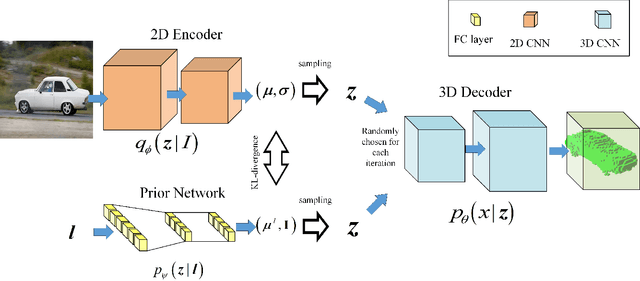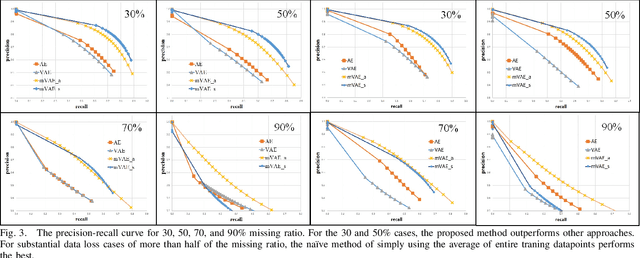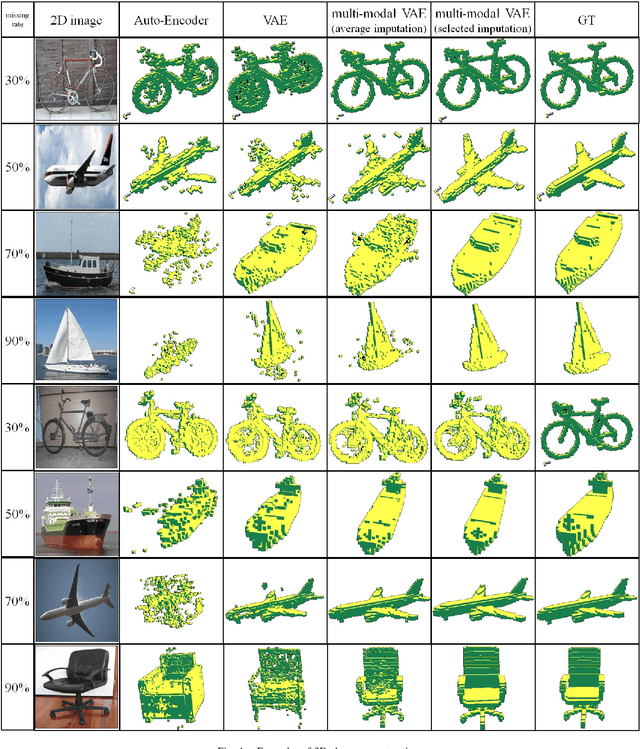A Missing Data Imputation Method for 3D Object Reconstruction using Multi-modal Variational Autoencoder
Paper and Code
Jan 25, 2021



For effective human-robot teaming, it is importantfor the robots to be able to share their visual perceptionwith the human operators. In a harsh remote collaborationsetting, however, it is especially challenging to transfer a largeamount of sensory data over a low-bandwidth network in real-time, e.g., for the task of 3D shape reconstruction given 2Dcamera images. To reduce the burden of data transferring, datacompression techniques such as autoencoder can be utilized toobtain and transmit the data in terms of latent variables in acompact form. However, due to the low-bandwidth limitation orcommunication delay, some of the dimensions of latent variablescan be lost in transit, degenerating the reconstruction results.Moreover, in order to achieve faster transmission, an intentionalover compression can be used where only partial elements ofthe latent variables are used. To handle these incomplete datacases, we propose a method for imputation of latent variableswhose elements are partially lost or manually excluded. Toperform imputation with only some dimensions of variables,exploiting prior information of the category- or instance-levelis essential. In general, a prior distribution used in variationalautoencoders is achieved from all of the training datapointsregardless of their labels. This type of flattened prior makes itdifficult to perform imputation from the category- or instance-level distributions.
 Add to Chrome
Add to Chrome Add to Firefox
Add to Firefox Add to Edge
Add to Edge